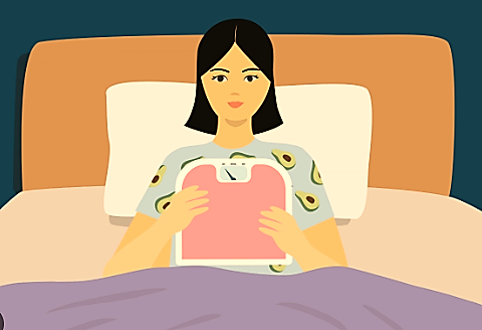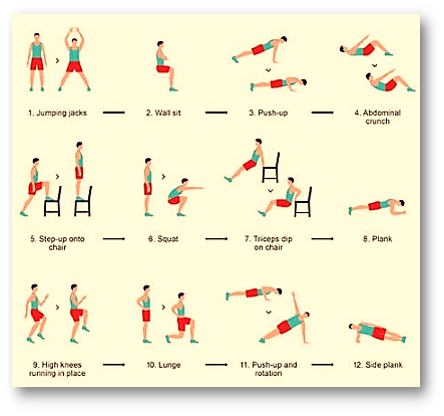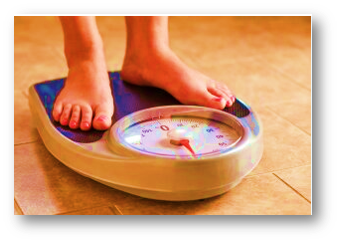Weight loss refers to the process of losing body weight, which can be achieved through a variety of means, including dieting, exercising, and other lifestyle changes. When people lose weight, they typically lose both fat mass and lean mass, such as muscle. The ultimate goal of weight loss is to reach and maintain a healthy weight, which is determined by a person’s height, age, gender, and other factors. Losing weight can have a number of health benefits, such as reducing the risk of obesity-related diseases, such as heart disease, diabetes, and high blood pressure.
SET SPECIFIC, ACHIEVABLE GOALS FOR YOURSELF
Setting a specific, achievable goal is an important part of the weight loss process. Here are a few tips for setting goals:
Make your goals specific:
Instead of saying “I want to lose weight,” try setting a specific goal like “I want to lose 10 pounds in the next two months.”
Make your goals achievable:
It’s important to choose a goal that is realistically achievable given your current lifestyle and resources. Losing 1-2 pounds per week is a safe and realistic goal for most people.
Make your goals measurable:
Use a scale or other tracking method to measure your progress and keep track of your progress toward your goal.
Make your goals time-bound:
Set a specific timeline for achieving your goal, such as “I want to lose 10 pounds in the next two months.” This will help you stay focused and motivated.
Make your goals actionable:
Identify specific steps you can take to achieve your goal, such as exercising regularly, eating a healthy diet, and tracking your food intake.
Remember, it’s important to be kind to yourself and recognize that weight loss is a journey. It’s okay to have setbacks and it’s important to focus on progress rather than perfection.
KEEP TRACK OF YOUR DAILY FOOD INTAKE USING A FOOD DIARY OR AN APP
Keeping track of your daily food intake can be a helpful tool for weight loss. Here are a few ways to do it:
Use a food diary:
A food diary is a written record of everything you eat and drink in a day. You can use a notebook or journal to write down your food intake, or you can use a smartphone app or website.
Use a smartphone app:
There are many apps available that allow you to track your food intake by scanning barcodes, entering information manually, or taking photos of your meals. These apps often include features such as calorie and nutrient tracking, as well as the ability to set goals and track progress.
Use a website:
There are also many websites that allow you to track your food intake and exercise. Some websites offer additional features such as recipes, meal plans, and community support.
Tracking your food intake can help you become more aware of your eating habits and identify areas where you can make changes to support your weight loss goals. It’s important, to be honest, and accurate when tracking your food intake in order to get the most benefit.
EAT PLENTY OF FRUITS, VEGETABLES, AND LEAN PROTEINS

Eating plenty of fruits, vegetables, and lean proteins is an important part of a healthy diet and can help support weight loss. Here’s why:
Fruits and vegetables:
These foods are rich in fiber, which can help you feel full and satisfied. They are also low in calories and high in nutrients, making them a healthy choice for weight loss.
Lean proteins:
Protein is an important nutrient that helps build and repair tissues in the body. It can also help you feel full and satisfied, which can help with weight loss. Lean proteins, such as chicken, turkey, fish, beans, and tofu, are lower in calories and fat compared to other protein sources.
Incorporating these foods into your diet can help you meet your nutritional needs while supporting your weight loss goals. It’s important to choose a variety of fruits, vegetables, and lean proteins to ensure that you are getting a well-rounded diet.
GET ENOUGH SLEEP EACH NIGHT

Getting enough sleep is an important part of maintaining overall health and can also be beneficial for weight loss. Here’s why:
Lack of sleep can lead to weight gain:
Research has shown that people who don’t get enough sleep are more likely to gain weight compared to those who get enough sleep. This may be because lack of sleep can lead to increased appetite and cravings for unhealthy foods.
Sleep can help regulate appetite:
Adequate sleep can help regulate the hormones that control appetite, including ghrelin and leptin. Ghrelin stimulates appetite, while leptin signals to the brain when you are full. When you don’t get enough sleep, levels of ghrelin may increase and levels of leptin may decrease, leading to increased appetite and cravings.
Sleep can help boost metabolism:
Sleep is important for maintaining a healthy metabolism, which is the process by which your body converts food into energy. Lack of sleep can lead to a slower metabolism, which can make it more difficult to lose weight.
It’s recommended that adults aim for 7-9 hours of sleep per night. Establishing a regular sleep schedule, creating a relaxing bedtime routine, and avoiding screens before bedtime can all help improve sleep quality.
INCORPORATE PHYSICAL ACTIVITY INTO YOUR DAILY ROUTINE

Incorporating physical activity into your daily routine is an important part of a healthy lifestyle and can also help with weight loss. Here are a few tips for getting more active:
Find activities you enjoy:
The best type of physical activity is the one that you enjoy and will be more likely to stick with. This could be anything from walking, running, or cycling to dancing, swimming, or yoga.
Start small:
If you’re new to exercise or haven’t been active in a while, start with small increments of physical activity and gradually increase the duration and intensity over time.
Make it a habit:
Try to incorporate physical activity into your daily routine by scheduling it at the same time each day or finding ways to be active throughout the day, such as taking the stairs instead of the elevator or going for a walk during your lunch break.
Mix it up:
Varying your physical activity routine can help keep things interesting and prevent boredom. Try different types of activities, such as strength training, cardio, or flexibility exercises.
Remember to listen to your body and not push yourself too hard. It’s important to start at a level that is comfortable for you and gradually increase intensity as your fitness improves.
LIMIT YOUR INTAKE OF SUGARY DRINKS AND FOODS

Limiting your intake of sugary drinks and foods can be beneficial for weight loss and overall health. Here’s why:
Sugary drinks and foods are high in calories:
Many sugary drinks and foods are high in calories, but low in nutrients. This means that they can contribute to weight gain if consumed in excess.
Sugary drinks and foods can contribute to chronic diseases:
Consuming large amounts of added sugars has been linked to an increased risk of chronic diseases, such as type 2 diabetes, heart disease, and dental cavities.
Sugar can be addictive:
Some research suggests that sugar can be addictive and may lead to cravings for more sugary foods. Limiting your intake of sugary foods and drinks can help reduce these cravings.
To limit your intake of sugary foods and drinks, try to choose water, unsweetened tea, or coffee instead of soda, sports drinks, and sweetened coffee drinks. When choosing foods, opt for whole foods that are naturally low in added sugars, such as fruits, vegetables, and lean proteins. It’s also a good idea to read food labels and choose products that are lower in added sugars.
AVOID EATING LATE AT NIGHT OR IN FRONT OF THE TV
Eating late at night or in front of the TV can be detrimental to weight loss for a few reasons:
Late-night eating can lead to weight gain:
Eating late at night has been linked to weight gain, as the body’s metabolism slows down at night, making it more difficult to burn calories.
Eating in front of the TV can lead to mindless eating:
When we eat in front of the TV, we are more likely to eat more than we need because we’re not paying attention to our food. This can lead to weight gain.
Lack of sleep can lead to weight gain:
Eating late at night can also disrupt sleep, which can lead to weight gain. Adequate sleep is important for maintaining a healthy metabolism, which is the process by which your body converts food into energy.
To avoid eating late at night or in front of the TV, try to eat dinner earlier in the evening and avoid snacking in front of the TV. It’s also a good idea to plan ahead and have healthy snacks on your hands, such as fruit or vegetables, to avoid the temptation to eat unhealthy foods late at night.
DRINK PLENTY OF WATER AND STAY HYDRATED

Drinking plenty of water and staying hydrated is an important part of maintaining overall health and can also be beneficial for weight loss. Here’s why:
Water can help you feel full:
Drinking water before meals can help you feel full, which may help you eat less.
Water can help with digestion:
Water is essential for proper digestion and can help prevent constipation.
Water can help with weight loss:
Some research suggests that drinking water can help with weight loss, although the exact mechanism is not fully understood. It’s possible that drinking water may help increase metabolism and boost fat burning.
It’s important to aim for at least 8 cups (64 ounces) of water per day, although individual needs may vary based on factors such as age, gender, and activity level. Water is the best choice for hydration, but other beverages such as unsweetened tea and coffee can also contribute to your daily fluid intake. It’s important to avoid sugary drinks, as they can contribute to weight gain.
EAT SLOWLY AND MINDFULLY
Eating slowly and mindfully can be beneficial for weight loss and overall health. Here’s why:
Eating slowly can help you feel full:
It takes about 20 minutes for the brain to receive the signal that you are full. Eating slowly can give your body time to register this feeling, which may help you eat less.
Eating mindfully can help you pay attention to your food:
When we eat mindfully, we pay attention to our food and how it tastes, smells, and feels. This can help us enjoy our food more and be more satisfied with smaller portions.
Eating mindfully can help reduce stress:
Eating mindfully can also help reduce stress, as it allows us to focus on the present moment and savor our food rather than multitasking or eating in a rushed manner.
To eat slowly and mindfully, try to sit down at the table and focus on your food. Put your fork down between bites and pay attention to the flavors, textures, and smells of your food. Avoid distractions such as TV or phone while eating. It may also be helpful to practice deep breathing or mindfulness meditation before meals to help you relax and focus on your food.
DON’T SKIP MEALS, ESPECIALLY BREAKFAST
Skipping meals, especially breakfast, can be detrimental to weight loss for a few reasons:
Skipping meals can lead to overeating:
When we skip meals, we may be more likely to overeat later in the day because we’re hungry. This can lead to weight gain.
Breakfast can help with weight loss:
Some research suggests that eating breakfast can help with weight loss. Breakfast can help kick-start your metabolism and provide energy for the day. It can also help prevent overeating later in the day.
Skipping meals can lead to nutrient deficiencies:
Skipping meals can also lead to nutrient deficiencies, as we may not be getting all the nutrients we need to maintain good health.
To avoid skipping meals, try to plan ahead and have healthy options available. It’s also a good idea to eat at regular intervals throughout the day, such as every 3-4 hours, to help keep your energy levels stable and prevent overeating. Don’t forget to include a healthy breakfast as part of your daily routine.
CONSULT WITH A REGISTERED DIETITIAN OR A HEALTHCARE PROFESSIONAL FOR PERSONALIZED ADVICE

Consulting with a registered dietitian or a healthcare professional can be helpful for getting personalized advice on weight loss and overall health. A registered dietitian is a healthcare professional who is trained to provide nutrition counseling and support people in making dietary changes to improve their health. A healthcare professional, such as a doctor or nurse, can also provide guidance on weight loss and overall health.
When consulting with a registered dietitian or a healthcare professional, it can be helpful to come prepared with any questions or concerns you may have. You may also want to bring a list of your current medications, supplements, and any known allergies or sensitivities.
A registered dietitian or a healthcare professional can help you develop a personalized plan for weight loss that takes into account your individual needs, goals, and lifestyle. They can also provide support and guidance along the way to help you achieve your health and weight loss goals.
https://www.cmaj.ca/content/cmaj/174/1/56.full.pdf
https://www.ncbi.nlm.nih.gov/books/NBK72065/


Pingback: EVERY MORNING IS A NEW OPPORTUNITY!! - Life Biologs
Pingback: WALK, IS THE SIMPLEST WAY TO FEEL ALIVE!! - Life Biologs
Pingback: Keto diet: Navigating the Keto Craze!! - Life Biologs